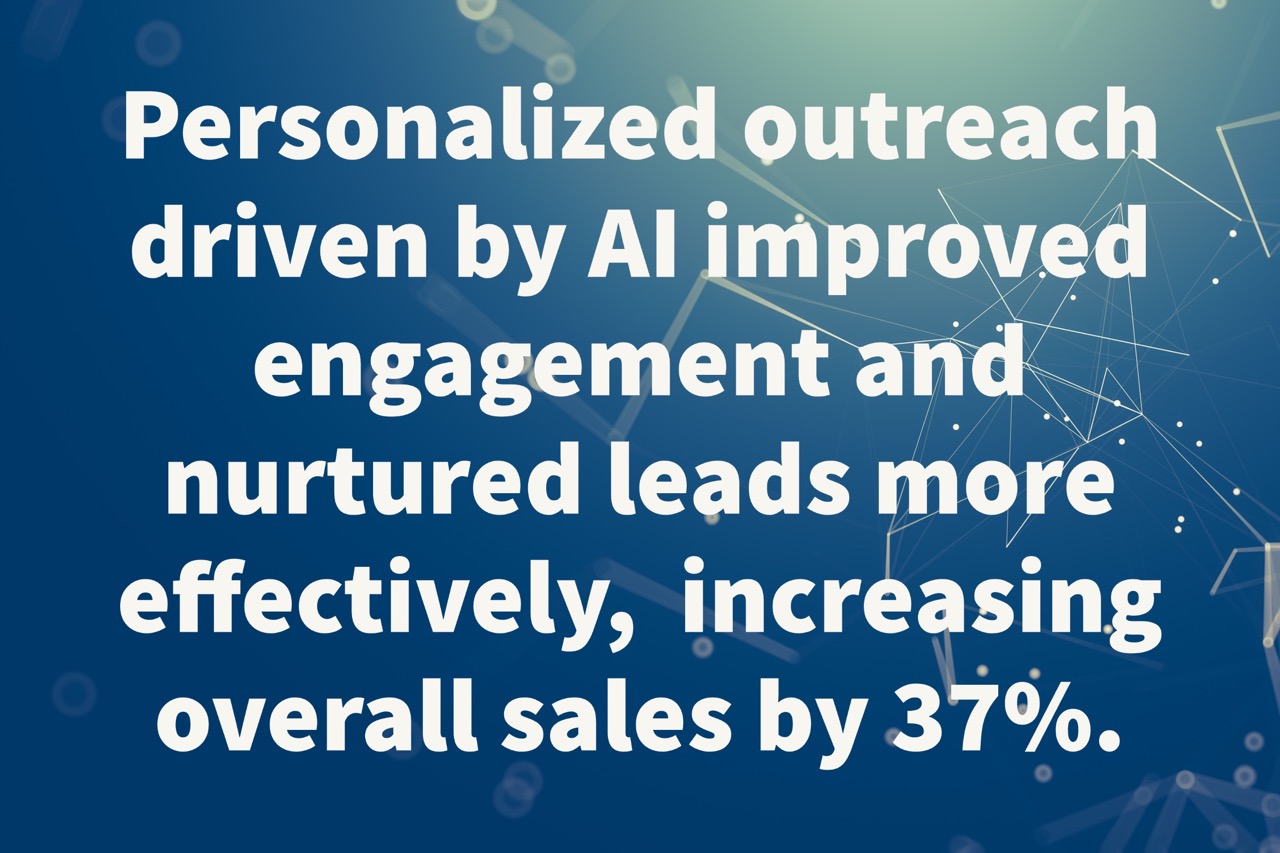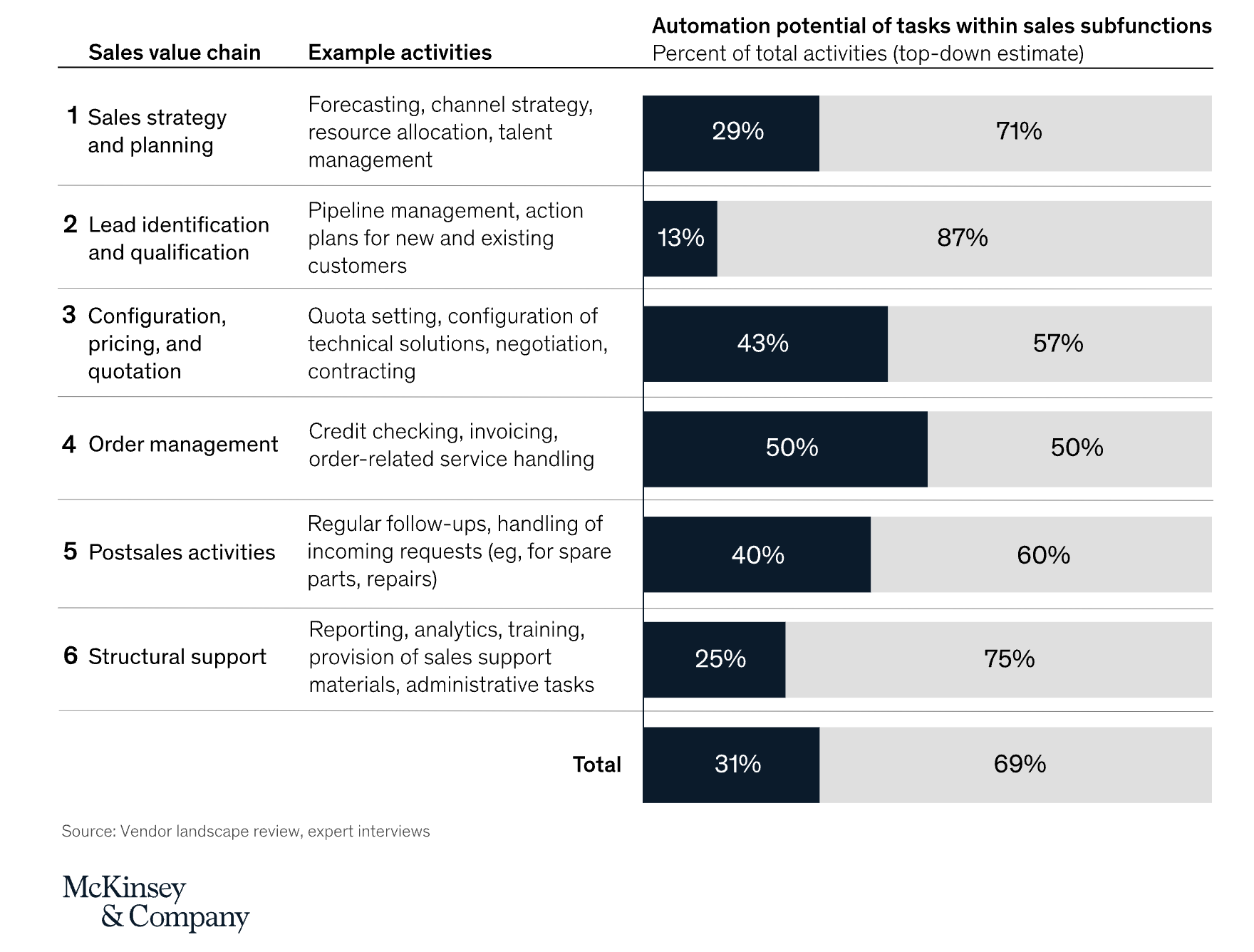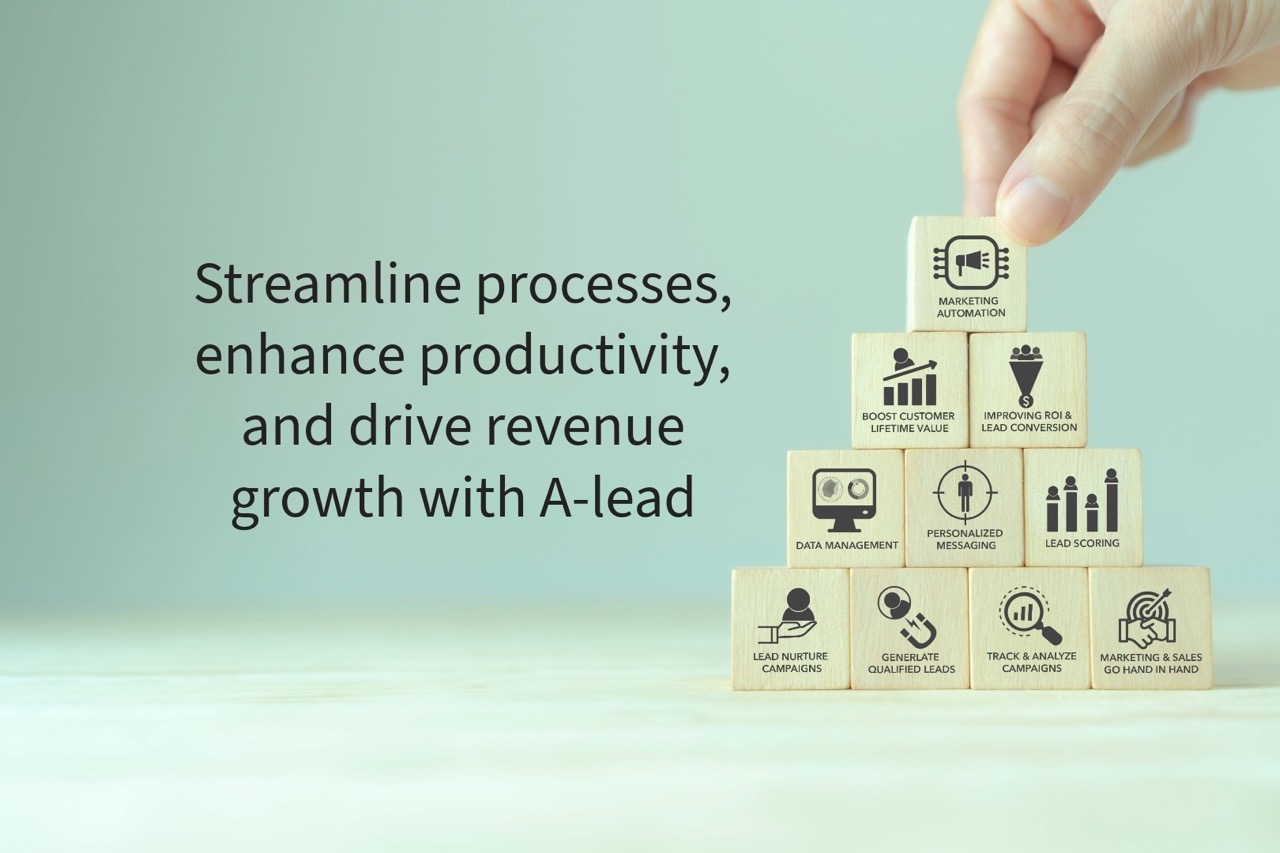Automation has revolutionized how businesses operate across various industries. The sales sector is no exception, as organizations increasingly embrace automation to streamline processes, enhance productivity, and drive revenue growth. In this blog post, we’ll explore the significant sales activities that have undergone automation over the past five years, backed by insightful statistics highlighting the positive results.
Lead Generation and Prospecting:
Automated lead generation tools have gained immense popularity, enabling businesses to identify potential customers more efficiently. According to a study by InsideSales.com, adopting AI-driven lead-generation tools increased by 44% between 2018 and 2022. This has resulted in a 33% reduction in lead research time, allowing sales teams to focus on high-value tasks like personalized outreach and relationship-building. Consequently, companies have reported up to a 45% increase in conversion rates.
Personalized Outreach:
Automation has transformed the way sales teams engage with leads and prospects.
This innovative synergy, particularly in utilizing AI-driven email marketing platforms like A-lead, has ignited a profound positive shift. Reports from SalesForce indicate that enterprises have been basking in the glow of a 50% surge in email open rates, accompanied by a noteworthy 25% upswing in response rates.

How A-lead’s Personalization Enhances Sales Results:
Real-Time Engagement: With A-lead, emails become dynamic conversations rather than static messages. The platform’s AI capabilities enable real-time responses, providing instant answers to inquiries and nurturing leads even when sales representatives are unavailable. This continuous engagement ensures that prospects remain engaged and informed, significantly enhancing the likelihood of conversion.
Behavioral Insights: A-lead’s AI delves into the behavioral patterns of leads, deciphering their interactions and interests. This invaluable insight equips sales teams with a profound understanding of each lead’s journey, enabling them to tailor their communication strategies further and offer solutions that precisely cater to the recipient’s requirements.
Dynamic Personalization: A-lead’s advanced conversational AI empowers sales teams to craft emails that resonate deeply with individual leads. By tailoring the content, tone, and timing to each recipient’s preferences and needs, sales professionals can create a more intimate connection, fostering genuine interest and trust.
Predictive Analytics: Leveraging A-lead’s predictive analytics, sales teams can anticipate lead behavior and preferences. By strategically leveraging this foresight, they can proactively address potential concerns, position products or services more effectively, and guide leads seamlessly through the sales funnel.
Customer Relationship Management (CRM):
Integrating AI and automation into CRM systems has led to a 30% reduction in administrative tasks for sales reps, per a study by Nucleus Research. This time-saving allows sales professionals to allocate more energy toward building strong customer relationships. With automated follow-ups, task reminders, and lead tracking, sales teams have witnessed a 29% increase in customer retention rates, leading to a substantial boost in recurring revenue.
Sales Forecasting:
Automation has significantly enhanced the accuracy of sales forecasting. According to a report by McKinsey, companies that leverage advanced analytics and automation for sales forecasting have experienced a 15% improvement in forecast accuracy. This increased precision has led to better inventory management, optimized resource allocation, and a 20% reduction in revenue loss due to stockouts or overstocking.

Data Analytics and Insights:
Sales analytics have evolved through automation, providing businesses real-time insights into their performance. A survey conducted by Deloitte found that 63% of companies have automated their sales analytics processes over the last five years. This has resulted in a 28% increase in sales team productivity, as reps spend less time compiling and analyzing data and more time strategizing and executing effective sales initiatives.
Over the past five years, the sales landscape has undergone a remarkable transformation, with automation pivotal in optimizing various sales activities. From lead generation to customer relationship management, automation has not only increased efficiency but also driven remarkable growth. The statistics presented in this blog post demonstrate the tangible benefits of embracing automation, including higher conversion rates, improved customer retention, and enhanced sales forecasting accuracy. As technology advances, businesses that strategically implement automation in their sales processes are poised to stay ahead of the competition and achieve sustainable success in the ever-evolving market.

